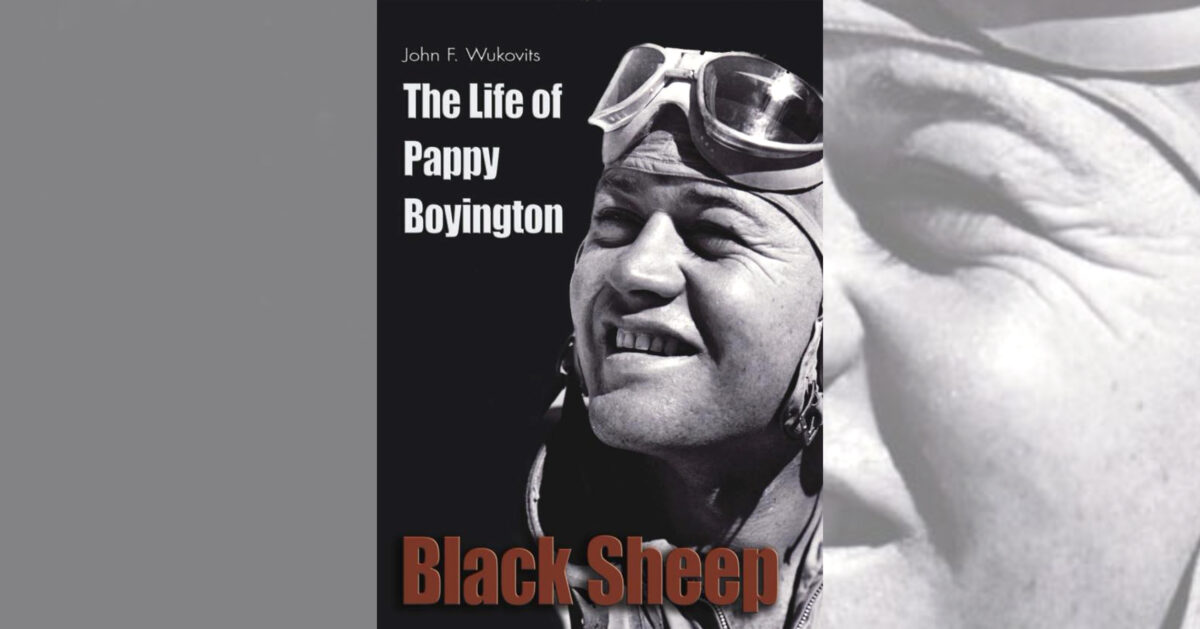Black Sheep: The Life of Pappy Boyington By John F. Wukovits 228 pp. Naval Institute Press, 2011. $34.95.
Mavericks win wars. And the legendary alcoholic Marine Corps ace Gregory “Pappy” Boyington was surely one of the most colorful mavericks of all. He left the Marine Corps before he could be thrown out, only to join the Flying Tigers in China and Burma, where he further underlined his reputation as a wild man on the ground and in the air. Such flaws were overlooked, however, when America needed to muster every experienced fighter pilot, no matter how renegade.
Boyington wrangled a major’s commission before taking command of Marine Fighter Squadron 214, otherwise known as “the Black Sheep Squadron.” Boyington led by example and quickly turned this ragtag unit into a superb and deadly force. He was arguably the most dangerous American to ever sit at the controls of a Vought F4U Corsair. In one month alone he downed 14 enemy fighters, most of them Japanese Navy Zeroes.
Although he spent a great deal of time “pickled” when not in a cockpit, Boyington was far from delinquent in his planning of missions and training. But there was only so much one could do to prepare for a dogfight: “There is no such thing as strategy up there,” he told one pilot. “Gambler’s guts would be better to describe what a fighter pilot needs. It’s just like street fighting. If you hit the other guy first, and hit him hard, you’ll probably strike the last blow.”
Pappy racked up an astounding 28 kills and earned the Medal of Honor before being shot down and captured in January 1944. Thanks to his guile and resilience, he survived brutal POW camps, including the notorious “Torture Farm.” He was liberated on August 29, 1945, having endured the longest stretch of sobriety of his adult life.
Boyington enjoyed nationwide celebrity after the war and milked it royally, further capitalizing on his legend in his 1958 bestseller Baa Baa Black Sheep, the basis for the wildly popular 1970s TV series. Sadly, by the time the 75-year-old lost his last fight—with cancer—in 1988, he had few admirers, though he left a long trail of failed relationships and empty bottles.
This new biography by John Wukovits is less entertaining than his subject’s own ripping yarn, and not as detailed as Bruce Gamble’s excellent 2000 account, but it will appeal to serious Marine aviation fans. Wukovits expertly sifts fact from myth and shows why Boyington inspired and infuriated in equal measure. Above all, he reminds us that, when leading men in combat, “Black Sheep One” not only had the right stuff—he was one of the very best.





